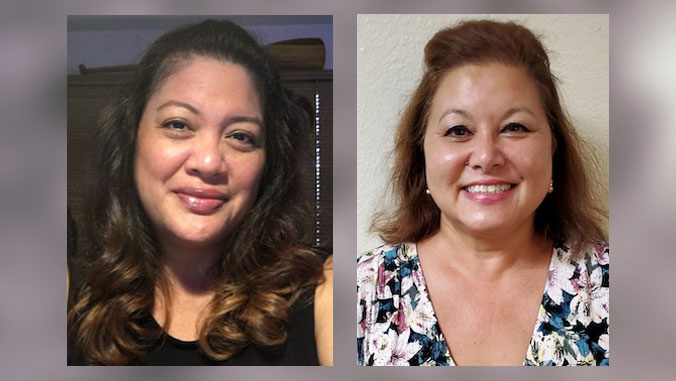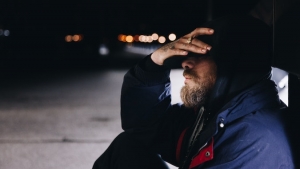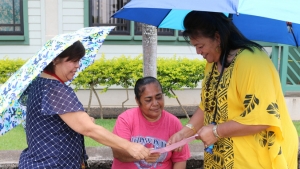
Last May, the University of Hawaiʻi began a partnership with the Hawaiʻi Department of Health (DOH) to train Community Health Workers (CHWs) as part of the DOH-UH Contact Tracing Training Program and the UHealthy Hawaiʻi initiative in an effort to enhance health outreach in high-risk communities affected by COVID-19. A year later in May, nearly 150 students statewide will have earned their certification training through the UH online program, and have been or will be ready to play a vital role in the state’s response to the ongoing pandemic.
CHWs draw on our own resiliency building experiences to help other individuals navigate and heal
—Lia Thorne
As CHWs, these trainees have the skills to help connect disadvantaged populations with health care providers and community resources to improve the quality of their health and lives. These populations include the Native Hawaiian/Pacific Islander communities, as well as uninsured and homeless individuals. CHWs are trusted advocates for their patients who oftentimes do not know where to turn to for help.
“Hawaiʻi is blessed with a rich and diverse population and afflicted with stark health inequities,” said CJ Johnson, DOH COVID-19 Outreach and Public Health Education community liaison. “As the Department of Health and its community partners rise to the formidable challenge of a vaccination campaign without any precedent in its scale and urgency, the importance of community health workers has never been clearer. The professional and lived experience they bring to the table ensures that our plans include community voices and address community needs.”
Helping to end homelessness

Martha Boyd is a CHW with the Queen’s Care Coalition (QCC). Boyd has been with the coalition since it began operating in 2018 and was able to complete the UH program while she was employed. “What I learned at UH was priceless! I could take what I learned in school and immediately apply it to my patients I was seeing in the community,” she said.
At Queen’s, Boyd works with patients who are usually homeless, uninsured or underinsured. She assists up to 12 patients at a time for about 90 days, depending on the cases. “They come to the Emergency Department for colds, food or clothing because they do not know about resources in the community that can help them,” she explained. “I offer shelter options, food bank options, clothing, connection to insurance services, connections to a primary care doctor, and often accompany them to doctors appointments.”
“When I do this, the patient is not viewed as a ‘homeless, non-compliant patient,’ but as a ‘human being’ that needs care,” she said. “This changes the way doctors and staff respond to the patient.”
Boyd said their work at QCC is important “to really help end homelessness in Hawaiʻi, by trying to get our patients in housing, shelters and help with their problems, whether it is mental health, no money or no family connections.”
According to Boyd, some patients are not aware of COVID-19 or are resistant to getting vaccinated. To address their questions and concerns, she provides them with information from the CDC or consults with her medical director to make sure they have the facts and answers to help them make an informed decision.
“I don’t try to change their minds. The patient is still capable of making their own medical decisions,” she said. “My care for the patient is driven by what the patient desires and wants, not me ‘making’ them do what I want.”
Due to COVID-19, Boyd and her colleagues have adapted in the way they deal with their patients. While face-to-face interactions have been minimized, creative solutions have helped them build and sustain the relationships with their patients, including buying them cell phones so they can keep their telephonic appointments with doctors. According to QCC, the average cost savings per patient served through the QCC program is about 40%.
Addressing vaccine mistrust

Another UH program graduate, Lia Thorne, serves as a CHW with HMSA and focuses on Quest HMSA members. Thorne provides members with services ranging from weekly touch-base phone calls to assisting them in navigating public programs, such as applying for federal Supplemental Nutrition Assistance Program (SNAP), formerly known as Food Stamps, and/or Temporary Assistance for Needy Families benefits. Her caseload can be as high as 25 patients at a time.
Thorne has extensive experience working at various health care systems across the island. She notes that while the role of CHWs has been brought to the forefront even more during COVID-19, they have been involved in patient care for as long as medical and health existed.
“We do not possess all knowledge, but we do possess the bonds that tie us to our communities,” she said. “We are a key component in the continuity of patient care because we have close relationships with those cultures and communities that we personally identify with, live in and serve.”
With regard to COVID-19 vaccinations, Thorne said she hears a lot of mistrust issues from members, including how vaccines are made, difficulty with understanding the different vaccination tiers, and concerns about how policy decisions were made. “Many people feel disgruntled about having to wait for a vaccination. Relaying accurate information is vital to bringing about understanding and trust,” she said.
Thorne provides members with visual aids that can be found on trusted sites such as CDC and DOH, especially in other languages. This sometimes leads her to sharing and educating members about using the internet, and accessing apps on their smartphones. She knows it’s important work, and part of her role as a CHW.
“The reality is this–[due to COVID-19] every human being on this planet now has a shared traumatic experience. CHWs draw on our own resiliency building experiences to help other individuals navigate and heal,” Thorne said.
More on CHW certificate program
The CHW program is a certificate program that can be completed in one or two semesters. The statewide program is accessible at Kapioʻlani Community College. Additional programs are offered at UH Maui College and Windward Community College. Courses include: CHW fundamentals, counseling and interviewing, health promotion and disease prevention, case management, an in-person practicum component and COVID-19 health clinical training.
Interested students may visit the respective UH community college websites to learn more about the general program and the COVID-19 response.
—By Arlene Abiang

